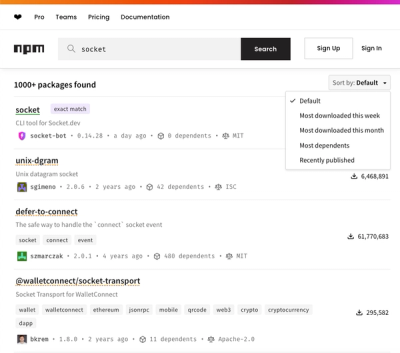@openapitools/openapi-generator-cli





OpenAPI Generator allows generation of API client libraries (SDK generation), server stubs, documentation and
configuration automatically given an OpenAPI Spec (both 2.0 and 3.0 are supported). Please see
OpenAPITools/openapi-generator
Version 2.x.x
[update] The command has been renamed
You need to execute openapi-generator-cli instead of openapi-generator from now on.
[added] semver support! 🎉

To make that happen, a version management was added to the package.
The first time you run the command openapi-generator-cli the last stable version
of OpenAPITools/openapi-generator is downloaded by default.
That version is saved in the file openapitools.json. Therefore you should include this file in your version control,
to ensure that the correct version is being used next time you call the command.
If you would like to use a different version of the OpenAPITools/openapi-generator,
you could change it by using one of the following commands:
openapi-generator-cli version-manager listopenapi-generator-cli version-manager set <versionTags...>
[added] generator config
You will now be able to configure the code generation in openapitools.json.
This makes it more convenient to generate code for every file that matches the given glob expression.
For more information, please check out the configuration documentation below.
Installation
Locally (recommended)
npm install @openapitools/openapi-generator-cli
or using yarn
yarn add @openapitools/openapi-generator-cli
After the installation has finished you can run npx openapi-generator-cli or add a script like this:
{
"name": "my-cool-package",
"version": "0.0.0",
"scripts": {
"my-awesome-script-name": "openapi-generator-cli generate -i docs/openapi.yaml -g typescript-angular -o generated-sources/openapi --additional-properties=ngVersion=6.1.7,npmName=restClient,supportsES6=true,npmVersion=6.9.0,withInterfaces=true",
}
}
Note the whitespace sensitivity when using multiple additional-properties:
--additional-properties=ngVersion=6.1.7,npmName=restClient,supportsES6=true,npmVersion=6.9.0,withInterfaces=true
Globally
npm install -g @openapitools/openapi-generator-cli
or using yarn
yarn global add @openapitools/openapi-generator-cli
After the installation has finished you can run openapi-generator-cli
Usage
Mac/Linux:
openapi-generator-cli generate -g ruby -i https://raw.githubusercontent.com/OpenAPITools/openapi-generator/master/modules/openapi-generator/src/test/resources/3_0/petstore.yaml -o /var/tmp/ruby-client
Windows:
openapi-generator-cli generate -g ruby -i https://raw.githubusercontent.com/OpenAPITools/openapi-generator/master/modules/openapi-generator/src/test/resources/3_0/petstore.yaml -o C:\temp\ruby-client
Configuration
If you have installed the package locally and executed the command openapi-generator-cli at least once,
you will find a new file called openapitools.json along with the package.json. Please add this file to your VCS.
Initially the file has the following content:
{
"$schema": "node_modules/@openapitools/openapi-generator-cli/config.schema.json",
"spaces": 2,
"generator-cli": {
"version": "4.3.1" // or the current latest version ;)
}
}
This configuration indicates the following:
- the json file shall be formatted using 2 spaces
- the jar files shall be downloaded to ./my/custom/storage/dir
- the generator-cli version 4.3.1 is used
Further it is also possible to configure generators, for example:
{
"$schema": "node_modules/@openapitools/openapi-generator-cli/config.schema.json",
"spaces": 2,
"generator-cli": {
"version": "4.3.1",
"storageDir": "~/my/custom/storage/dir", // optional
"generators": { // optional
"v2.0": { // any name you like (just printed to the console log)
"generatorName": "typescript-angular",
"output": "#{cwd}/output/v2.0/#{ext}/#{name}",
"glob": "examples/v2.0/{json,yaml}/*.{json,yaml}",
"additionalProperties": {
"ngVersion": "6.1.7",
"npmName": "restClient",
"supportsES6": "true",
"npmVersion": "6.9.0",
"withInterfaces": true
}
},
"v3.0": { // any name you like (just printed to the console log)
"generatorName": "typescript-fetch",
"output": "#{cwd}/output/v3.0/#{ext}/#{name}",
"glob": "examples/v3.0/petstore.{json,yaml}"
}
}
}
}
If openapi-generator-cli generate is called without further arguments, then the configuration
is automatically used to generate your code. 🎉
Available placeholders
| placeholder | description | example |
|---|
| name | just file name | auth |
| Name | just file name, but starting with a capital letter | Auth |
| cwd | the current cwd | /Users/some-user/projects/some-project |
| base | file name and extension | auth.yaml |
| path | full path and filename | /Users/some-user/projects/some-project/docs/auth.yaml |
| dir | path without the filename | /Users/some-user/projects/some-project/docs |
| relDir | directory name of file relative to the glob provided | docs |
| relPath | file name and extension of file relative to the glob provided | docs/auth.yaml |
| ext | just file extension | yaml |
Custom Generators
Custom generators can be used by passing the --custom-generator=/my/custom-generator.jar argument.
Further Documentation
Please refer to the official openapi-generator docs for
more information about the possible arguments and a detailed usage manual of the command line interface.
Install previous version
npm install @openapitools/openapi-generator-cli@previous
npm i @openapitools/openapi-generator-cli@1.0.18-4.3.1
or using yarn
yarn add @openapitools/openapi-generator-cli@previous
yarn add @openapitools/openapi-generator-cli@1.0.18-4.3.1
You like the package?
Please leave a star.







